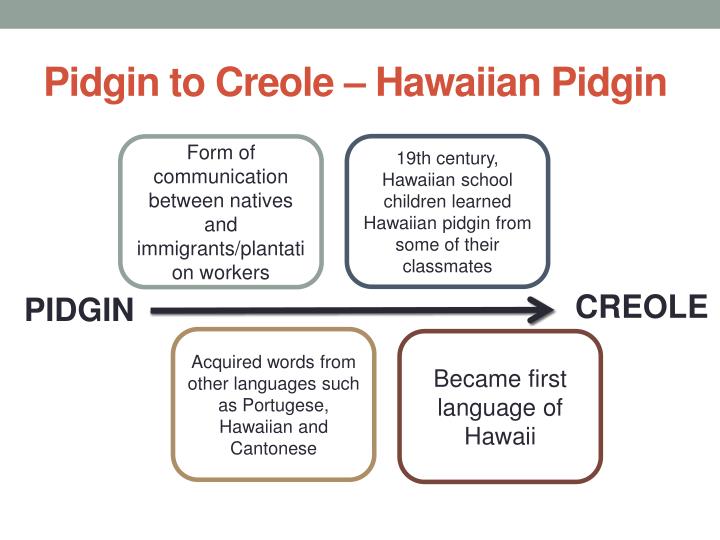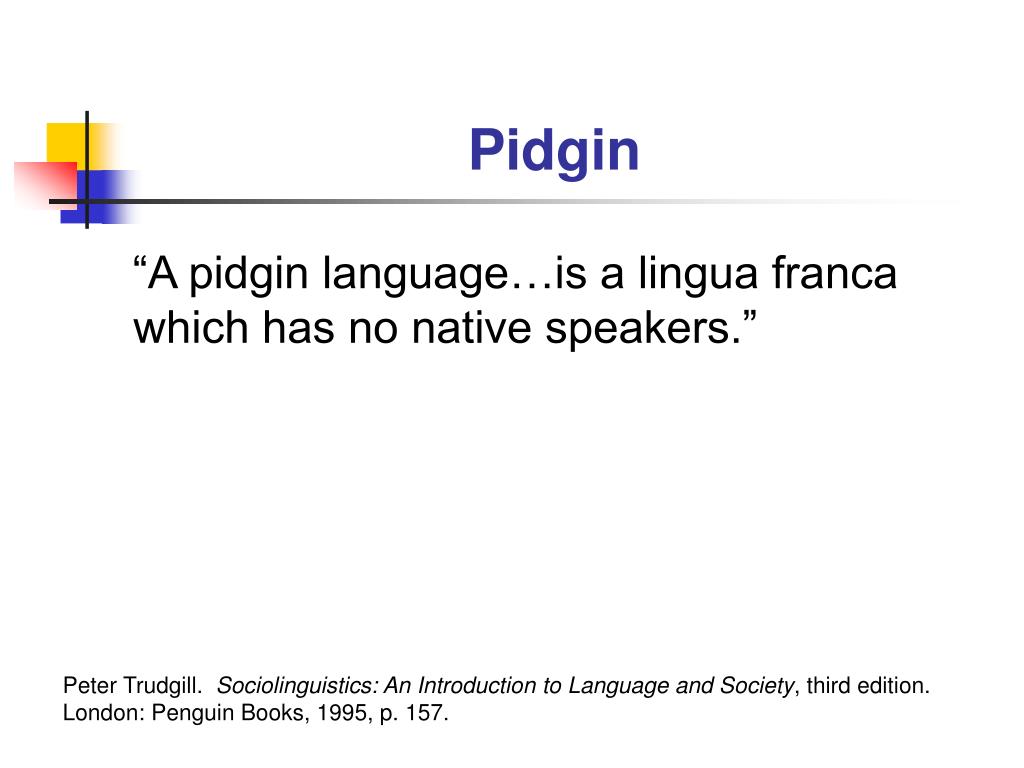

To gain insight into the development of language, some researchers take advantage of exceptional situations in which language acquisition does not progress in a conventional way. One of the challenges of studying language acquisition is that it is an internal process that is difficult to observe, especially when most of those who are actively acquiring language are infants and toddlers.

A local radio station in Lagos, Nigeria, “WAZOBIA”, uses pidgin English for nearly all of its broadcasting. Pidgin English is increasingly gaining ground every day. The Nigerian Pidgin alone has about 40 million native speakers. About 75 million people across Nigeria, Ghana, Cameroon, and Equatorial Guinea speak the West African Pidgin. It has become the mother tongue of many people in communities like Warri, Port Harcourt, and Asaba. government no say sanction go dey for Nigeria, because of same-sex palava o,” he said.Īlthough not formally recognized, the West African Pidgin English is one of the most used lingua franca in the region. For example, James Entwistle, a former United States ambassador to Nigeria, once used it during a live broadcast on radio in Lagos when asked about Nigeria’s controversial anti-gay legislation and threats of US sanction. High-profile writers, politicians, and musicians sometimes use it publicly. Today, although some people still attach a stigma to it, pidgin is now more widely accepted and used. In the analysis of the construction, the word gbimgbim is an onomatopoeic lexical item in the Yoruba language that is employed in the Nigerian Pidgin English and may not be found in the Pidgin English of other West African countries.Ī lot is exceptional about the Pidgin English in West Africa even though its use was not encouraged at the beginning of the colonial era since it was seen as a bastardization of standard English. It keeps changing all the time, and it’s expressive as well.” That is why it is easy for a Yoruba native speaker who speaks pidgin to make syntactic construction such as “my heart dey do gbimgbim” which translates into “my heart beats fast”. As Bilikisu Labaran, the head of the new BBC Pidgin, puts it, “It is quite fluid. That is, it is unstable and likely to change often. However, they are usually mutually intelligible. There are differences in these varieties in each, the English language is mixed with other languages in the country. For instance, in Nigeria, there is the Nigerian Pidgin English (NPE) which has its peculiar features when compared with the pidgin spoken in Ghana, Sierra Leone and Cameroon. Right from its birth, the West African Pidgin English has experienced considerable growth, and there are even offshoots of it based on region.

Afterwards, the British slave merchants dominated the slave trade, and consequently, they (the British) and the local African traders developed and improved the language to facilitate their commercial activities. The remnant of some words which are of Portuguese origin in today’s West-African pidgin English includes “sabi” (to know) and “pikin” (child). History has it that Portuguese traders were the first set of Europeans to trade in West Africa in the 15th century. The West African Pidgin English was a language of commerce between British and African slave traders during the Atlantic slave trade around the 17th and 18th centuries. It is the root of many other interesting phenomena, including the advent of pidgin and creole-a pidgin that has grown into having native speakers. Language contact is an interesting linguistic phenomenon. Pidgin, this new form, usually composed of basic elements of two or more languages, arises from language contact and can be built from words, sounds, or body language. When two people with different native languages meet, and there is the need for them to communicate, they might be forced to express themselves in a thwarted form of their languages which over time can give rise to a new form of language.


 0 kommentar(er)
0 kommentar(er)
